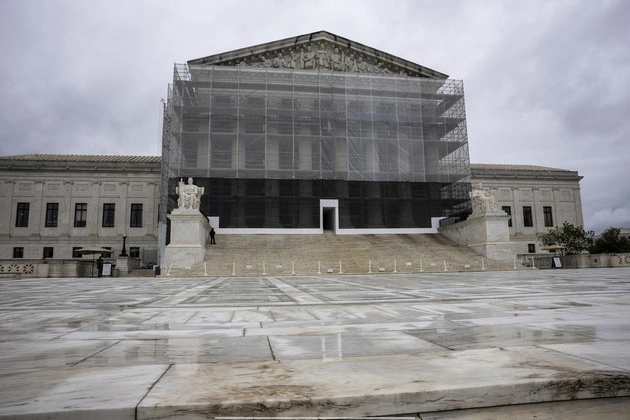
The Supreme Court’s upcoming ruling on coordinated spending limits between candidates and political parties has the potential to significantly alter the landscape of campaign finance regulations. If the Republican-led challenge succeeds, it could mark a major victory for the GOP and reshape how party committees allocate funds during election cycles.
Republican Challenge to Campaign Finance Laws
At the heart of the case is the argument that current federal laws restricting coordination between candidates and political parties infringe upon the First Amendment rights of parties and candidates. The National Republican Senatorial Committee and the National Republican Congressional Committee, along with then-Senator JD Vance, initiated the challenge in 2023.
The 6th Circuit’s decision to uphold the spending limits was a significant development, prompting the Supreme Court to consider revisiting longstanding precedents. The Justice Department’s decision not to defend the law further underscores the potential for a significant shift in campaign finance regulations.
Potential Implications of a GOP Victory
If the Supreme Court rules in favor of the Republican plaintiffs, party committees could see a substantial increase in their ability to coordinate spending with candidates. This could lead to a surge in TV advertising spending during election campaigns, particularly in competitive races across the country.
The current limits on coordinated spending, ranging from $63,600 to $127,200 for House races and $127,200 to $3,946,100 for Senate races, could be lifted, allowing party groups to exert greater influence through advertising efforts.
Democratic Opposition and Concerns
Democrats have expressed strong opposition to overturning the spending limits, citing concerns about giving undue political power to large donors. They argue that such a move could disproportionately benefit Republicans, who tend to rely less on small-donor contributions.
While individual donors face contribution limits, national party committees can receive significantly higher donations per year, potentially tilting the fundraising balance in favor of one party over the other.
Anticipated Court Decision
Despite the optimism from the NRSC and NRCC regarding the court’s decision to hear the case, the outcome remains uncertain. Legal experts have pointed to past rulings that uphold the constitutionality of coordinated party spending limits, raising questions about the core arguments presented by the Republican plaintiffs.
The ideological composition of the current Supreme Court compared to past decisions adds another layer of complexity to the case. While a victory for Republicans is not guaranteed, the implications of such a ruling could have far-reaching effects on future campaign finance regulations.
Conclusion
The Supreme Court’s decision on the challenge to campaign finance coordination rules has the potential to reshape the dynamics of political fundraising and advertising. As the case unfolds, both parties await the court’s ruling with anticipation, knowing that the outcome could have lasting implications for future elections.











